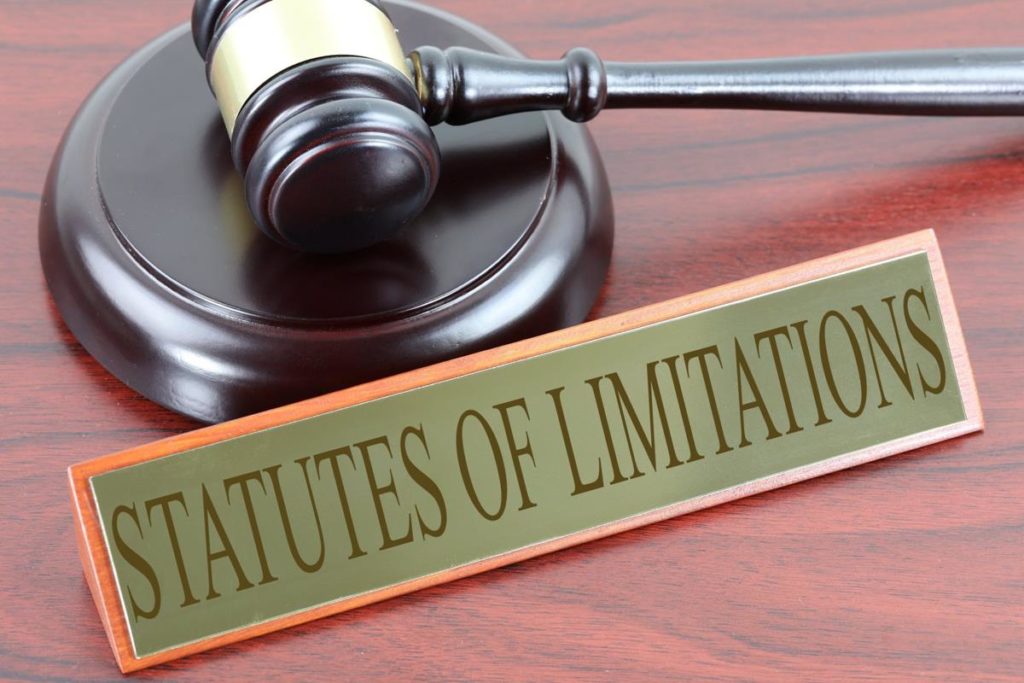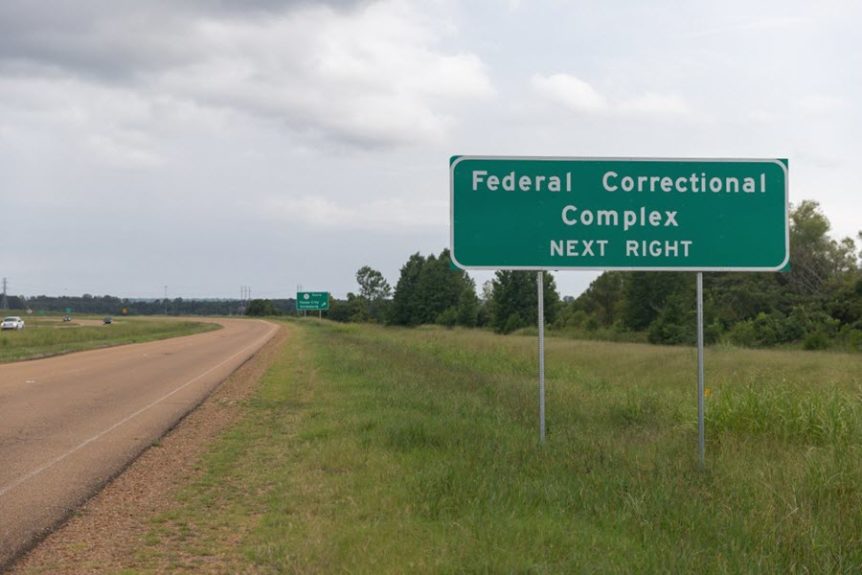Anytime the feds get involved in, well – anything, you know you’re in big trouble. That’s what happens when you violate federal laws.
The US criminal justice system can be confusing. Between federal laws, state laws, and local ordinances, it can get quite hard trying to figure out which jurisdictions certain offenses fall.
For instance, getting arrested on a burglary charge is not significant enough to warrant federal prosecution. Driving with a revoked license also falls within state jurisdiction. Getting arrested on drug possession can be both state and federal crimes. Counterfeiting and forgery – well, those are entirely federal.
So, what’s the difference between all of them? What is a federal crime, and what should you do if you’re facing federal prosecution? Here’s everything you need to know about it.
What Is a Federal Crime?
It is an offense that breaks federal law. When you think of crimes in general, the ones that probably come to mind first include robbery, murder, theft, arson, and rape. All these crimes violate state laws.
Legislators use their law-making ability at state-level, to come up with laws that regulate conduct. Since it’s the state that came up with the state laws, it also has the jurisdiction (power) to hear and rule on the cases that involve the violation of those laws.
On the other hand, the US Congress, which is the law-making arm of the government, has the authority to pass laws that impact interstate commerce, national security, or those that affect the federal government. Anyone who violates them commits a federal crime.
When crimes take place across state borders, the offense falls within the jurisdiction of the federal government, subsequently elevating it to a federal crime. If you commit a crime on federal properties like an Indian reserve, a national park, a federal building, or in the District of Columbia, that too falls in federal jurisdiction.
List of Federal Crimes
While it would be impossible to list all the examples of federal crimes, here’s a partial list of some of the most common ones you’re most likely to come across.
Mail Fraud
The term sounds innocuous, doesn’t it? Don’t be fooled. It’s a serious crime. So, what is mail fraud anyway, and how bad could it possibly be?

It is a lot more common than you would imagine. It involves using the US Postal Service (USPS) or any other private interstate courier, to deceive with the sole intent of committing a crime.
It means that if you mail something that’s associated with some specific type of fraud, the crime crosses over into federal jurisdiction. The most famous mail fraud conviction in history is no doubt the Charles Ponzi case. His notoriety coined the term Ponzi scheme. Mail fraud penalties involve a hefty fine and a prison term of up to 20 years behind bars.
Wire Fraud
What is wire fraud? To answer this question, you first need to understand what a “wire” is. The definition is rather broad and includes any writings, pictures, signals, signs, or sounds transmitted through radio, television, or wire in interstate communications.

Wire fraud has four elements to it:
- The individual/entity created or played an active role in a scheme to defraud another party out of money or property
- The individual/entity did it with the sole intent of defrauding the unsuspecting party
- The individual/entity intended to use wire communications to carry out the fraud
- The individual/entity used interstate wire communications to commit fraud
Interstate wire communications could mean the internet, telephone calls, television transmissions, or even faxes.
If found guilty, an individual/entity could face a wire fraud penalty such as:
- A fine of up to $250,000 for an individual
- A fine of up to $500,000 for an organization
- A prison term of up to 20 years
Tax Evasion
What is tax evasion? It’s perfectly legal to make mistakes when filing your tax returns. Intentionally under-reporting your income, on the other hand, is not. Claiming deductions that you very well know you’re not entitled to, is also a crime. Both of these scenarios define what tax evasion is. It generally takes two forms.

- Evasion of Assessment – Intentionally under-reporting income qualifies as an attempt to evade assessment.
- Evasion of Payment – Intentionally concealing money or assets on which tax could be levied qualifies as evading payment.
Other instances that federal courts have, in the past, ruled to be tax evasion include:
- Concealing income sources
- Creating false invoices
- Destroying records
- Filing false returns
- Holding money or assets in someone else’s name
- Keeping a double set of books
- Overstating deductions
Some common tax evasion penalties for the specific types of tax evasion include:
- Concealing/misrepresenting financial information: Up to five years behind bars and $100,000 in fines
- Failure to pay taxes: Up to three years behind bars or $250,000 in fines
- Filing fraudulent returns: Up to three years behind bars and $100,000 in fines
- Not filing returns: Up to one year behind bars and $100,000 in fines for each year and individual fails to file
Federal Hate Crime Law
The term “hate” in the context of this law refers to bias. At the federal level, hate crime is a criminal offense motivated by bias against protected characteristics like disability, gender, gender identity, sexual orientation, national origin, religion, race, or color.

Federal crimes that fall in this category go beyond “acts of prejudice.” For it to be classified as a crime, there would need to be threats of violence, actual violence, or property damage.
The Matthew Shepard and James Byrd Jr. Hate Crimes Prevention Act that was signed into law in October of 2009 gives federal authorities more power to pursue hate crime investigations that local and state authorities choose not to pursue.
Lynching Federal Crime
Earlier in the year, the House passed a measure to add lynching to the US Criminal Code. But this wasn’t the first try at passing such a law. Almost 200 attempts to enact similar legislation have been made since the 1900s to pass anti-lynching legislation, only for them to end up shelved, blocked, or overtaken by time and events.
The latest attempt is the Emmett Till Antilynching Act – named after Emmett Till, an African-American boy who was murdered through lynching in 1955. His crime? Allegedly whistling at Carolyn Bryant, a 21-year-old white woman. Emmett was 14 years old at the time of his death.
If passed by the Senate and signed by the President, the new law would make Lynching a federal crime.
Drug-Related Crimes
The laws that govern controlled substances exist at both a state and federal level. The question, therefore, becomes – at what point does a drug-related crime cross over into federal territory? There are four criteria used to determine this:
- Jurisdiction – If the federal system is involved in your arrest, then you will be arraigned on federal charges. It could be the result of a sting operation where state law enforcement and federal agents work together on a case. Or, it could be from a drug-use or possession charge, especially if it takes place on federal property such as a national park.
- Informing – If someone who was charged at the federal level informs on you to get a lenient sentence, then you too will be arraigned on federal drug charges.
- State and federal decisions – Drug arrests are often intertwined in state-level law enforcement and federal agencies. If state and federal prosecutors see it fit to prosecute on the federal level, then you will be charged with a federal offense.
- The seriousness of the offense – If the drug crime is deemed more severe, then federal charges will likely result. So, offenses that involve drug manufacturing, distribution, or intent to distribute, and trafficking are all likely to be handled by federal courts.
Drug-related convictions at the federal level are very serious and will likely impact the rest of your life. So, if you’re facing federal prosecution, ensure that you get the best drug crime lawyer on your side to get the best possible defense.

If you don’t, you could be looking at up to 20 years behind bars and a fine of up to $1,000,000 for first-time offenders. Second-time offenders face up to 30 years behind bars and a fine of up to $2,000,000.
RICO Act
Federal drug charges have the potential to open you up to several other charges that may not even seem related. It all depends on what you were arrested for. For instance, drug trafficking or drug distribution charges may also result in tax evasion charges or a RICO charge, which both mean additional jail time.
The RICO Act is a federal law that was passed in 1970. The law, which is short for the Racketeer Influenced and Corrupt Organizations Act, allows for federal prosecution, as well as civil penalties for all individuals involved in racketeering activities that take place in an ongoing criminal organization.
Racketeering activities include money laundering, drug trafficking, embezzlement, counterfeiting, murder, kidnapping, bribery, illegal gambling, and several other corrupt business practices.
So, if you’re in any way involved in what could be deemed as organized crime, then you may get additional prison time over and above that related to your drug crime. Racketeering activities carry a fine of up to $25,000 and 20 years in prison for each count of the offense.
Economic Espionage
Stealing trade secrets is a serious crime and is punishable at the federal level. The Economic Espionage Act that was enacted in 1996 made it a federal crime for anyone who intends to steal or knowingly steals a trade secret knowing fully well that those actions will cause injury to the trade secret owner.
It is also illegal to buy, possess, or receive this information knowing that it is stolen. Federal economic espionage penalties include up to $5 million in fines and a prison term of up to 15 years. The severity of the sentence depends on whether the offender was an individual or an organization.
Wiretap
Federal wiretapping law makes the surreptitious taping of telephonic, oral, or any other type of communication, illegal in discourse that the other party expects to be reasonably private. The reasonable expectation of privacy depends on the context in which the discussion took place.
It all boils down to whether or not the recorded party perceived the communication as private. If it took place in a public space, and anyone within earshot could get details of the discussion, the “reasonable” expectation of privacy threshold would be much lower. If it were a private telephone conversation, the threshold would be much higher.
If you’re currently facing wiretap charges, you need to retain the services of an experienced federal crime lawyer to defend you. Violating this federal law could get you up to five years behind bars if found guilty and a fine of $500 or both.
Animal Cruelty
The Preventing Animal Cruelty and Torture Act (PACT) outlaws the intentional impalement, suffocating, drowning, burning, crushing, or inflicting any other form of serious harm to all living non-human mammals, reptiles, birds or amphibians.
It also bans all forms of media like photographs, electronic images, videos, digital recordings, or films that depict animal cruelty. If you’re found guilty of breaking this federal animal cruelty law, you could be looking at up to seven years behind bars in addition to a hefty fine.
Statute of Limitation Federal Crimes
The US Code 18 § 3282 sets the statute of limitations for most federal crimes at five years, although it may be extended in certain circumstances.

These include cases where the feds need the DNA evidence of the accused person, require evidence from overseas, or if the accused is a fugitive. Death penalty offenses, on the other hand, do not have any time limit imposed on them.
Get Help From the Best Federal Criminal Defense Attorney
Getting charged with a federal crime could alter the course of your destiny forever. The penalties that come with them are pretty severe, to say the least.
So, if you or a loved one is facing federal prosecution, you need to get in touch with a top criminal defense attorney as soon as you can to help you get the best possible outcome at the end of the trial.
If you have any legal concerns or queries, don’t hesitate to chat online with a Laws101.com attorney to get legal guidance on your specific case.
